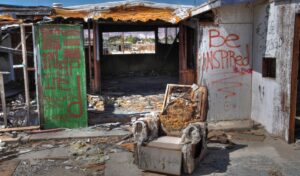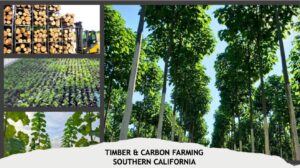On December 21, 2021, the United States Department of Agriculture (USDA), announced that it has awarded a grant to Catalina BioTech, Inc., to design, develop, and implement a pilot project that could launch of a “Timber & Carbon Farming Industry” for Southern California.
In addition to its economic revitalization value, the project would help boost the ecological health of the Salton Sea and improve quality of life of the area’s residents (by reducing airborne dust, which is a huge problem there).
Supervisor V. Manuel Perez, Riverside County Fourth District said, “My office is deeply involved in Salton Sea restoration efforts and Catalina BioTech’s project is consistent with the Salton Sea Restoration Program and the State of California’s ten-year management plan which includes priority funding for providing both habitat and agricultural dust suppression. Moreover, there are hundreds of thousands of acres of fallow federal and state lands surrounding the Salton Sea Region that are ideal for producing valuable lumber while also curbing climate change by sequestering and storing CO2.”
Paulownia is the fastest growing tree on the planet, reaching over 20 feet in height the first year. While non-native to California, it’s not invasive. That’s why this is referred to as farming, and not as reforestation.
Paulownia can be cut for harvesting quality timber in five years, and will regenerate for additional harvests every five years for up to 30 years. The pilot project will develop data from 825 Paulownia trees planted at the University of California Agriculture Research Station located in Riverside County.
A successful pilot project will de-risk the development of large-scale farms for producing sustainable grown lumber and sequestering carbon dioxide to mitigate climate change. This project will showcase California’s commitment to “Build Back Better” while also employing those located in persistent poverty counties with lucrative green jobs.

A fairly typical sight in the impoverished area around the Salton Sea. Photo by Patrick Kilborn from Pixabay.
Dan Johnson, USDA Business and Cooperative Programs Director stated, “We are pleased to provide Rural Business Development Grant (RBDG) funding to Catalina BioTech, Inc., for their “Timber & Carbon Farming Industry” pilot which will reveal the potential for development of regenerative Paulownia trees for production of timber, carbon credits and other valuable products within the Coachella Valley. The RBDG program supports targeted technical assistance, training and other activities leading to the development or expansion of small and emerging private businesses in rural areas. Training and technical assistance can include project planning, market research, feasibility studies and professional/technical reports. This project will promote economic development and job creation as well as provide opportunities for emerging small businesses that could lead to establishment of a sustainable lumber industry in rural areas of Riverside County.”
Paulownia tree farms have been successfully developed for producing lumber in Europe during the past decade. Catalina Biotech has contracted with WeGrow GmbH in Germany to transfer knowledge and proven technologies for the pilot project which will encourage investments for subsequent mass scaling of Paulownia farms within the Opportunity Zones of the Coachella Valley. The development of Paulownia farms in Southern California promises to produce high quality lumber branded as sustainable for the massive market of eco-conscious consumers concerned about climate change and seeking investments for decarbonizing our planet.
Congressman Raul Ruiz, M.D. concluded, “As the Representative of California’s 36th Congressional District, I understand the difference the USDA Rural Business Development Grant would make in the lives of the individuals I serve and represent. The Eastern Coachella Valley is one of the most underserved areas in Southern California—with the shrinking of the Salton Sea increasing the environmental and health burdens on nearby communities. By basing these carbon farms near the Salton Sea, this project would contribute immensely to the current Salton Sea Restorations program and to dust suppression from the playa. The dust particulates from the playa contribute to pediatric asthma and high rates of cancer within nearby communities. This Rural Business Development Grant would contribute to the overall health and wellbeing of the local communities and to the reduction of carbon emissions globally. This is an investment in a potentially sustainable timber industry and in the long-term quality of life for my constituents.”
Catalina BioTech, Inc., a 501(c)3 non-profit organization, is affiliated with RegenBiomass, Inc..
Featured photo of Salton Sea is by David Mark from Pixabay.


